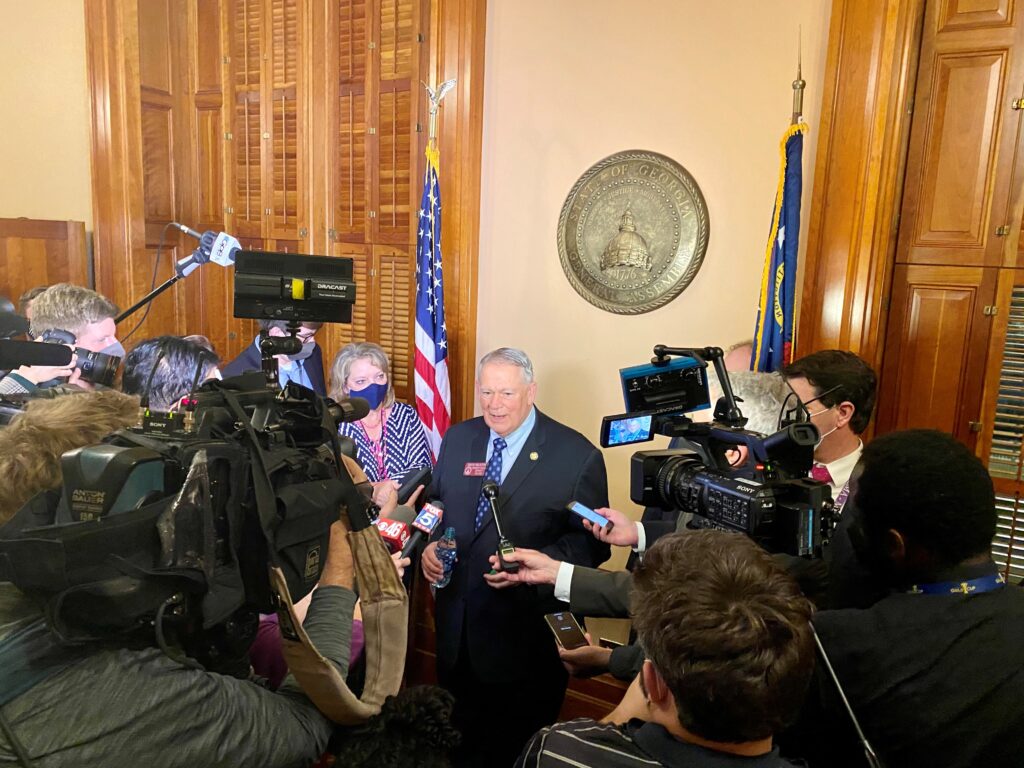
ATLANTA – The General Assembly gave final passage Wednesday to an overhaul of the state’s mental health-care delivery system praised as “transformative” by one legislative supporter.
The Georgia Senate passed House Bill 1013 unanimously. The House of Representatives followed a short time later, also voting unanimously to agree with changes to the legislation made on the Senate side.
Georgia ranks among the lowest states in the nation for access to mental-health services.
But that dismal status should end as a result of Wednesday’s vote, an emotional House Speaker David Ralston – who made the bill his top priority for this year’s session – told House members after the vote.
“Today, hope won,” said Ralston, R-Blue Ridge, to a standing ovation from the lawmakers. “Countless Georgians will know we’ve heard their despair and frustration.”
The legislation, which now heads to Gov. Brian Kemp for his signature, requires health insurance companies to cover mental illness the same way they cover physical illness. The parity provision also would apply to Georgia Medicaid and the State Health Benefit Plan.
Care management organizations (CMOs) participating in Georgia Medicaid will have to dedicate at least 85% of their revenues to patient care.
The bill also creates a service-cancelable loan program to address a workforce shortage by offering loan forgiveness to several types of mental-health specialists as well as primary-care physicians.
The Senate left intact in the measure the current law requiring that a mentally disturbed person pose an “imminent” threat to themselves or others before they can be involuntarily committed for an evaluation at a mental-health care facility. The original House version of the bill had removed “imminent” from that provision.
“An officer may take an individual to be evaluated without having to charge them with a crime,” said Sen. Brian Strickland, R-McDonough, who carried the bill in the Senate.
The bill also includes legislation originally introduced into the House by Rep. Yasmin Neal, D-Jonesboro, authorizing the Georgia Public Safety Training Center in Forsyth to provide mental health training to police officers.
Legislative leaders have been working on mental health reform for several years. Some of the recommendations from a task force of industry experts formed in 2019 are included in the bill that passed Wednesday.
Strickland said the work the Behavioral Health Reform and Innovation Commission isn’t done. The bill authorizes the panel to keep working on mental-health reforms, setting a new deadline of June 30. 2025.
“Many parts of this bill are long-term investments,” he said. “But we’ll start the process to make Georgia not just the No.-1 state in which to do business, but the No.-1 state for mental-health services.”
Also Wednesday, the House unanimously passed a related Senate bill allowing local law enforcement agencies to develop procedures for mental-health workers to join police in responding to 911 calls.
“If [police] find a mental-health crisis, they can call in a trained mental-health worker,” said Rep. Sharon Cooper, R-Marietta, who carried Senate Bill 403 in the House. “This is the way we should be dealing with our mental-health people.”
Because of changes the House made to the bill, it must return to the Senate to gain final passage.
This story is available through a news partnership with Capitol Beat News Service, a project of the Georgia Press Educational Foundation.
